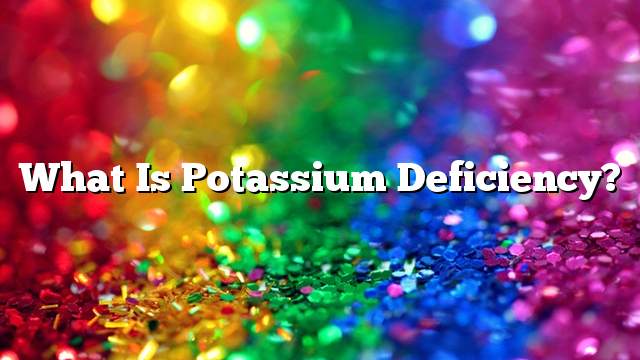Potassium is one of the most important minerals in the body. It is present in every cell of the human body. Potassium carries a positive charge and is considered one of the four main elements in the body with sodium, chloride and bicarbonate.
The electrolysis process and the potassium component play a crucial role in balancing water and maintaining blood pressure. Potassium is very important for keeping the muscles of the body in a normal position. It is also important for the proper functioning of the nerve receptors, as well as functions of the conduction process in the electrical impulses that also control the heart.
Symptoms of potassium deficiency:
The lack of potassium in the blood can result in a variety of symptoms, which vary in severity according to the degree of deficiency, resulting in weakness in the muscles, in addition to the occurrence of convulsions, and spasm, and muscle contraction is significantly different with the concentrations of potassium inside the cell and extracellular. Low levels of potassium reduce this difference by concentration, making the muscles unable to function normally. This causes generalized fatigue and a variety of symptoms including muscle weakness, convulsions, tremors, and in cases of severe hypokalemia, the muscles can Its condition is associated with shrinkage and tingling Numbness.
Diseases may result from severe potassium deficiency:
1. Paralysis:
The lack of potassium in the blood can cause muscle death as the deficiency is severe, the condition of paralysis caused by potassium deficiency muscle relaxant, and the muscles contributing to the breathing process can be affected by this deficiency, and may become a slow and superficial breathing, and may result from Potassium deficiency severely stops in the work of the muscles and does not stop the output by weakening the muscles only, but produces other symptoms such as:
Muscle stiffness, abdominal pain, bloating, pain, muscular spasms and involuntary cramps in the stomach and intestines. In addition, a complete breakdown may occur, especially if the level of potassium is very low.
2. Heart palpitations :
Pulses and pulses in the electrical pulses, which are transferred through the heart muscle through the specialized delivery system, are controlled. A lack of potassium in the blood can disrupt this delivery system, causing irregular heartbeat.
The most common symptoms of potassium deficiency are severe heart palpitations, possibly heart failure, and dizziness and dizziness. As a result, when you experience more than one symptom, it is best to check the potassium content and make a medical review.
